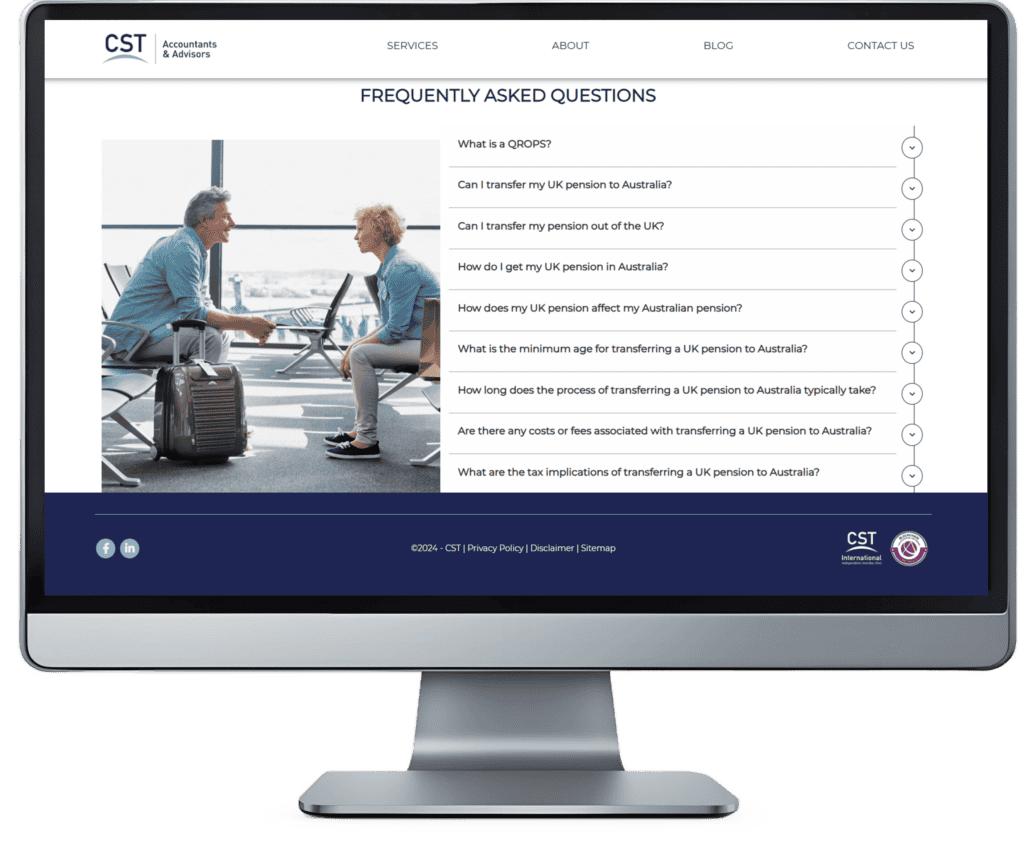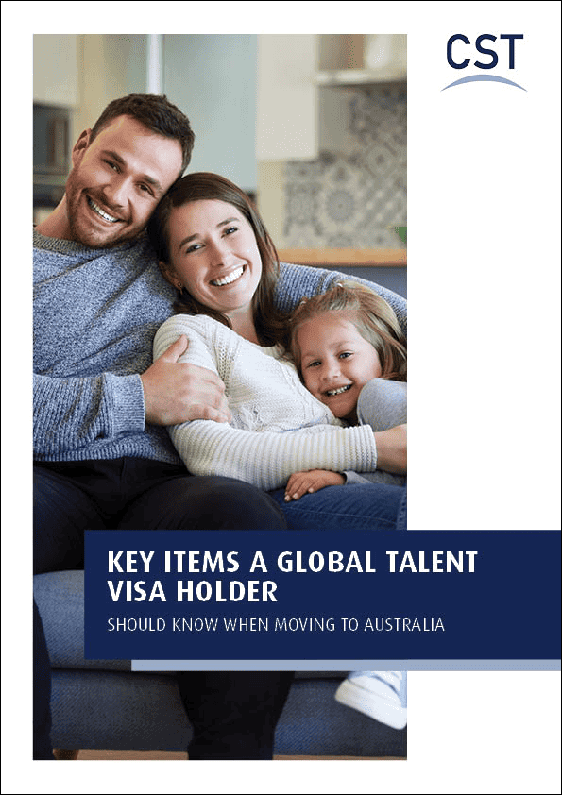John Marcarian | 30 Sep 2024 | 9 min read
Whether you have already moved to the United States or are planning to, there are tax implications for Australian expats to consider.
For example, how does the Australia-US tax treaty apply to capital gains on the realization of assets, and what will your Australian and US tax obligations be?
These are just a few questions this article will answer for you.
What Is Capital Gains Tax?
To begin, it is crucial to have a comprehensive understanding of capital gains tax concerning Australian expats.
Capital Gains Tax or CGT is a tax on the profit made from selling an item classified as an asset. In Australia, as in the United States, CGT is complex and different from other taxes. Let us review both Australian and US CGT and then bring them together.
Australian CGT Tax
In Australia, CGT applies to any asset acquired after 20 September 1985.
Selling an asset for more than it costs means you have a capital gain and must pay CGT. If an asset is sold for less than it cost, this results in a capital loss that can offset against current or future capital gains.
Generally, if an Australian tax resident makes a capital gain and the asset sold was held for at least 12 months, the 50% capital gain tax discount will apply. This results in half the capital gain being included in assessable income and being assessed at marginal rates of tax – which may vary between financial years. See the ATO website for the current individual tax rates.
There are potential exemptions from the capital gains tax regime, including the main residence exemption.
A person’s main residence, which was moved into as soon as practicable after purchase and continues to be a person’s main residence for the entire ownership period, and on sale, if still a tax resident of Australia, will be exempt from CGT.
In relation to the main residence exemption, new laws passed in 2019, which came into effect 1 July 2020 now mean a total loss of this exemption if the property is sold while the taxpayer is a non-resident of Australia. There are some exceptions known as life events but careful planning is required to ensure the preservation of this exemption.
US CGT Tax
Under US law, the tax rate applied to capital gains depends on the asset’s holding period.
For assets held more than a year, you pay long-term capital gains tax, usually lower than the tax on ordinary income.
For assets held for less than a year, short-term capital gains tax rates apply, equal to your normal income tax rate.
Your income also determines the percentage of CGT you pay in the United States.
Your US CGT rate will depend on your taxable income. It is best to check the IRS website for the most current income thresholds for which CGT rate applies.
There are also special circumstances under which your capital gains might be taxed at a higher rate. For example, net capital gains from selling collectibles (such as coins or art) are taxed at a maximum 28% rate.
Australia-US Tax Treaty And Its Impact On Capital Gains Tax
For Australian expats in the US, the Australia-US Tax Treaty is particularly important to understand. First signed into law in 1982, the treaty has been updated several times since then to address changes in areas such as superannuation and non-US investments.
The Australia-US Tax Treaty determines where your tax obligations lie between the two countries. The overarching goal of the treaty is “avoidance of double taxation and the prevention of fiscal evasion with respect to taxes on income.”
As we explain in this article, the Australia-US Tax Treaty, allows the tax paid in one jurisdiction to be claimed as a tax credit in the other jurisdiction, in the event that the income is assessable in both.
For example, if the US sourced income is first taxed in the US and the income is then assessed in Australia, the tax first paid in the US will be taken up as a foreign tax credit against the tax assessed on the income. If the foreign tax credit covers the Australian tax, then any excess foreign tax credits are lost. If there is a shortfall after the foreign tax credit is applied to the assessed Australian tax, then extra tax will be required to be paid.
Tax Obligations When Selling A Former Main Residence In Australia
Let us look at an example to demonstrate how the Australia-US Tax Treaty affects Australian expats when selling their former main residence.
An Australian couple moves to the US and lives there for eight years. They have decided to sell their former main home in Australia (purchased in 2015 for AUD1,000,000 and now worth AUD3,000,000).
Australian Tax Considerations
This couple would be classified as foreign residents and would not qualify for the CGT main residence exemption. As such, they will pay Australian CGT tax on the AUD2,000,000 (AUD3,000,000-AUD1,000,000) capital gain.
However, if this Australian couple moves back to Australia and are considered residents for tax purposes and they reestablish the home as their main residence, depending on the length of their absence from Australia and whether they rented the property out or left it vacant, will determine whether a full or partial main residence exemption exists.
This example makes it clear that planning the timing of the sale of your former primary residence can and will have material tax implications. With that in mind, it is critical to get professional tax advice to optimize any potential or upcoming CGT liabilities.
It is important to note Australia also offers certain life event exemptions if they occurred during the time this family lived abroad, which could make them eligible for the CGT main residence exemption.
The life events this includes are:
- You, your spouse, or your child under 18 had a terminal medical condition
- Your spouse or your child under 18 died
- The CGT event happened because of a formal agreement following the breakdown of your marriage or relationship
USA Tax Considerations
Any income earned, including employment income and realized capital gains, is subject to US tax. Australians who have become US tax residents, including green card holders and those in the US for over 183 days in the last two years, are taxed on worldwide income. This would include the AUD2,000,000 capital gain.
However, the U.S. allows a foreign tax credit for U.S. residents on US taxes owed against any tax already paid to Australia or vice versa.
The Australia-US Tax Treaty requires that the combined taxes paid in both countries cannot exceed the total tax that would otherwise have been payable in the country where the sale occurs.
Australia And USA Combined Tax Considerations
If the Australian couple decided to sell their former main residence in Australia while being a non-resident for tax purposes, they will need to declare this income on both the Australian and US income tax return.
As the property is situated in Australia, the first taxing rights reside with Australia. Tax will be applied at non-resident marginal rates on their AUD2,000,000 capital gain.
For the US CGT, the tax on their AUD2,000,000 capital gain would be calculated depending on their combined income and the CGT rate applicable.
Thankfully, this couple would not have to pay both the full amount of tax in Australia and the US, as the tax treaty allows taxpayers in each jurisdiction to avoid double taxation. In this case as Australia has the first taxing rights, the US would give the couple a tax credit for the tax paid in Australia and the excess tax paid will be carried forward.
CGT On Selling Shares Originally Purchased In Australia
Let us assume an Australian citizen moves to the US for a period of five years. During this time, they decided to sell the shares purchased while they resided in Australia.
The first aspect to consider is what their choice was when then became a non-resident of Australia. If an Australian tax resident moves to the US and becomes a non-resident and they hold a share portfolio, the choices on cessation of residency with respect to the share portfolio is either to take a deemed disposal or ignore the deemed disposal and treat the shares as Taxable Australian Property.
A deemed disposal involves comparing the purchase price of the shares to the market value of the shares on the date that residency ceased. Importantly, there is no cash received with respect to this type of CGT happening and so if there is a large accumulated capital gain, then there will be a tax bill that requires payment from other funds.
If the latter option is chosen (ie. they choose to treat the shares as Taxable Australian Property), any future sale of these shares are connected with Australia and a capital gain or capital loss requires calculation and reporting in the Australian income tax return, even as a non-resident.
Fortunately, the treaty provides a paragraph where future sales of this portfolio can be subject to tax solely in the US. If a choice is made to have future sales subject to tax solely in the US, then the deemed disposal on cessation of residency is ignored.
CGT On Inheritance In Australia
If an Australian citizen has lived in the US for 15 years and inherits an investment property and shares, what are the tax implications in both Australia and the US?
Inheriting Property
The original property was purchased for AUD500,000 and has a current market value of AUD2,500,000. If the property was sold on when inherited, there will be a capital gain of AUD2,000,000 (AUD2,500,000-AUD500,000). As Australia has the first taxing rights, tax will be applied at non-resident rates.
If they had no other Australian sourced income for the year in which the property was sold, tax on the capital gain of AUD2,000,000 would be AUD875,350.
The USA CGT tax on their AUD2,000,000 capital gain would be calculated depending on their combined income and the CGT rate applicable.
The Australian citizen would not have to pay both the AUD875,350 Australian CGT and US CGT as the treaty allows taxpayers in each jurisdiction to avoid double taxation. In this case, the US would give the person a tax credit totaling AUD875,350.
Inheriting Shares
If they inherit shares, they can choose to have any future sales solely taxed in the US under the Australia-US Treaty.
Get Help Navigating CGT For Australian Expats
There are many intricacies and challenges to navigating tax laws between countries. The information in this article may not cover some variables relevant to your circumstances and as such it is recommended you seek tax advice for your specific situation.




